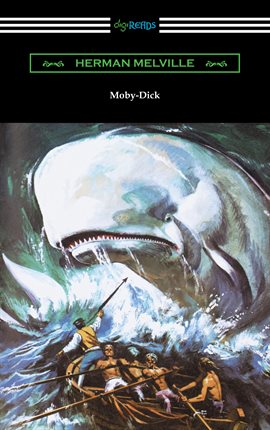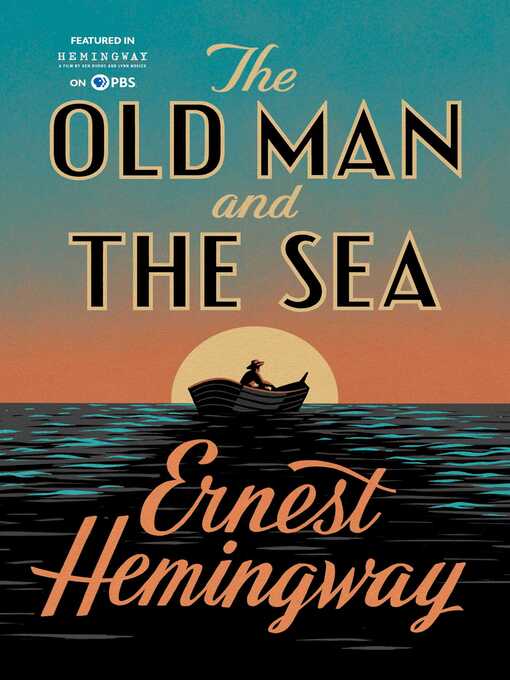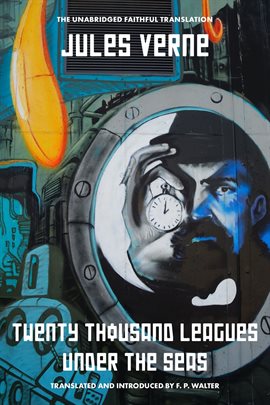Though we find ourselves a landlocked crew here in the Midwest, the ocean still can cast its spell on our imaginations. The summer reading theme, Oceans of Possibilities, provides an opportunity to revisit some classic works of literature about sea life. Several titles spring to mind.
 First published in 1851, “Moby Dick” is an epic tale of an obsession so all-consuming that even the ocean can scarcely contain it. I read this book in my late teens because it happened to be on our bookshelves at home and I hadn’t been exposed to the idea that it was supposed to be difficult. I was enthralled by the adventure, the details of a life so different from mine, and the existential questions the story raised. Herman Melville drew on his own experience as a sailor, as well as a fair amount of research, to create his tale of Captain Ahab’s single-minded pursuit of the whale that maimed him.
First published in 1851, “Moby Dick” is an epic tale of an obsession so all-consuming that even the ocean can scarcely contain it. I read this book in my late teens because it happened to be on our bookshelves at home and I hadn’t been exposed to the idea that it was supposed to be difficult. I was enthralled by the adventure, the details of a life so different from mine, and the existential questions the story raised. Herman Melville drew on his own experience as a sailor, as well as a fair amount of research, to create his tale of Captain Ahab’s single-minded pursuit of the whale that maimed him.
To ponder the difference between obsession and perseverance, follow Melville’s novel with one by Ernest Hemingway. “The Old Man and the Sea” won the 1953 Pulitzer Prize for Fiction. Generations of students have now read and discussed the battle between Santiago, an aging fisherman down on his luck, and the giant marlin that represents all his hopes and dreams.
follow Melville’s novel with one by Ernest Hemingway. “The Old Man and the Sea” won the 1953 Pulitzer Prize for Fiction. Generations of students have now read and discussed the battle between Santiago, an aging fisherman down on his luck, and the giant marlin that represents all his hopes and dreams.
 For a deep dive into ocean adventures, there’s always good old Jules Verne, who takes us on a voyage of “Twenty Thousand Leagues Under the Sea.” Like many novels of the 1800s, this one was originally published as a set of serialized magazine stories. Though submarines did exist in a rudimentary form in the 1860s, the author was years ahead of his time with his vision of Captain Nemo and his underwater vessel, the Nautilus. There’s plenty of action here, but since Verne’s protagonist is motivated largely by a quest for scientific knowledge, this story involves a lot more exploration and descriptions of ocean habitat than the previous two titles.
For a deep dive into ocean adventures, there’s always good old Jules Verne, who takes us on a voyage of “Twenty Thousand Leagues Under the Sea.” Like many novels of the 1800s, this one was originally published as a set of serialized magazine stories. Though submarines did exist in a rudimentary form in the 1860s, the author was years ahead of his time with his vision of Captain Nemo and his underwater vessel, the Nautilus. There’s plenty of action here, but since Verne’s protagonist is motivated largely by a quest for scientific knowledge, this story involves a lot more exploration and descriptions of ocean habitat than the previous two titles.
Speaking of science, let’s finish with a work of nonfiction. Rachel Carson’s 1951 book, “The Sea Around Us,” has been translated into 28 languages and set a high standard for nature writing. As she wrote about geographical features, amazing sea creatures, and the power of tides, Carson’s lyrical prose style conveyed not only information but a sense of wonder. She gave people knowledge and also made them care.


